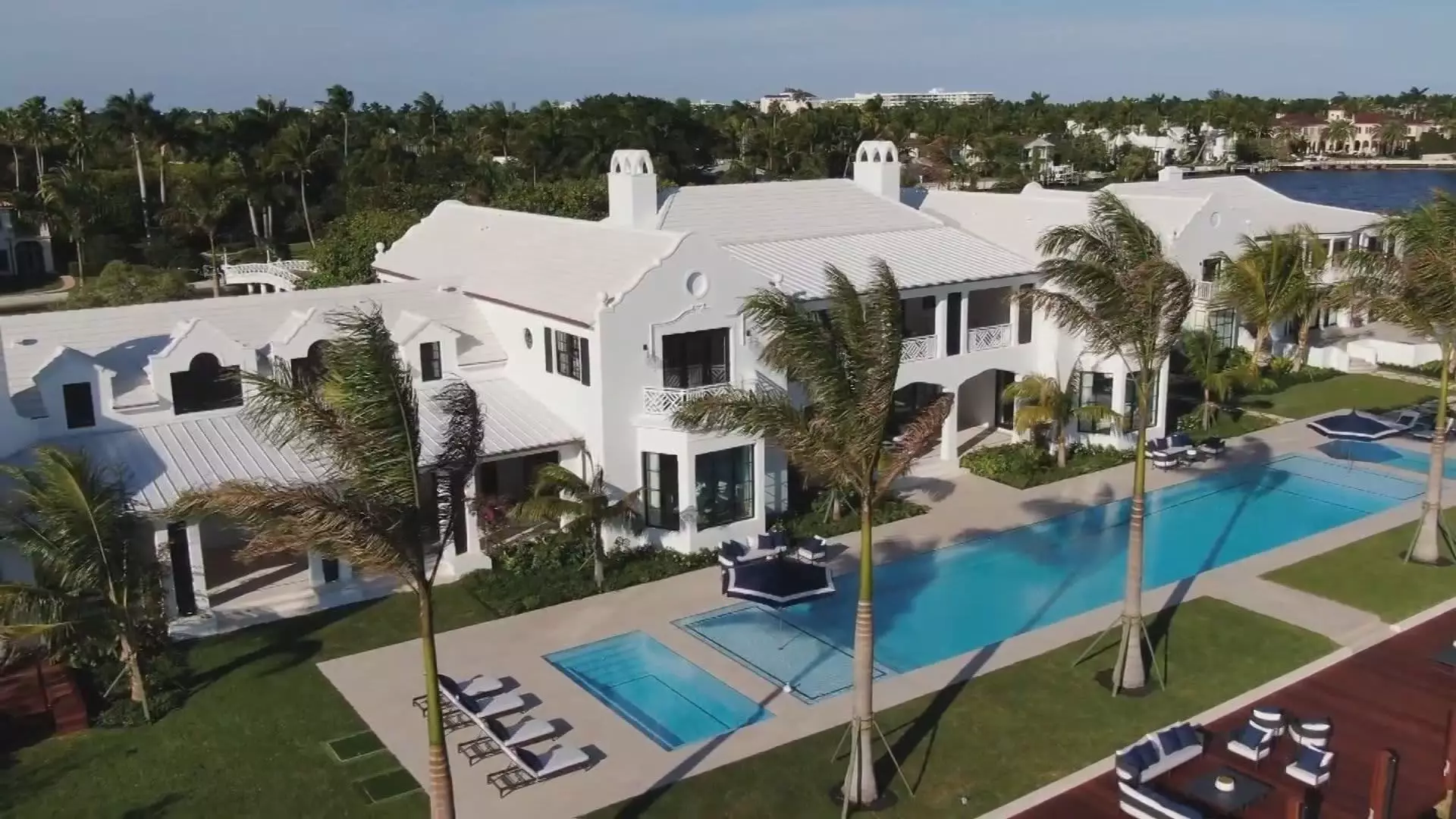Fleeting Fortunes: Examining the Surge in Ultra-Luxury Real Estate Sales

The ultra-luxury real estate sector has emerged as a counterintuitive winner amidst a broader decline in high-end property sales worldwide. Recent data reveals astonishing increases in sales of homes priced at $10 million or more in key American markets like New York, Miami, and Palm Beach, Florida. This trend starkly contrasts with reports showing a dip in sales in many other luxury markets globally. For instance, while the second quarter saw a 44% jump in Palm Beach and 27% in Miami, New York managed a respectable 16% increase. These figures, sourced from a Knight Frank report, suggest that affluent buyers are not only active but are pursuing properties with vigor in select locales.
New York’s real estate landscape remains unbeaten within the U.S., posting 72 transactions exceeding the $10 million mark—its highest in two years. Following closely were Miami and Los Angeles, which posted 55 and 42 sales, respectively. Interestingly, while the East Coast was bustling, Los Angeles exhibited a downturn, suffering a notable 29% decline. The introduction of a “mansion tax” in L.A., imposing a 5.5% fee on property sales above $10 million, has been identified as a critical factor in this regression. This divergence in regional performance not only highlights the resilience of certain luxury markets but also suggests that taxation policies significantly influence buyer behaviors and preferences.
The ultra-luxury sector demonstrated an insatiable appetite for unique properties, as evidenced by high-stakes transactions earlier this year. The notable sale of a private island in Palm Beach for a staggering $150 million to Australian investor Michael Dorrell exemplifies the market’s capability for record-breaking deals. Moreover, the sale of a historic estate in the same area for $148 million alongside a $135 million transaction for the Aman New York penthouse underscores a prevailing trend amongst ultra-wealthy buyers: the pursuit of rare, iconic assets. Clearly, while general luxury sales may be wavering, the desire for exclusive properties remains robust among affluent buyers.
While the overall high-end property market may be cooling from the peaks of 2021, the appetite for trophy properties among the super-wealthy appears undeterred. Knight Frank’s global head of research, Liam Bailey, attributes this predominantly to the significant wealth generated in recent years, which has fueled high-stakes purchases in emerging markets such as Dubai, Palm Beach, and Miami. Indeed, Bailey notes that the transformation of these markets has effectively absorbed the slowdown felt in more established areas, allowing for a juxtaposition of increasing demand in these havens for high-net-worth individuals.
On a global scale, Knight Frank’s analysis tracks a slight decrease, with $10 million-plus home sales dipping by 4% year over year to about $8.5 billion. Dubai stands out as a remarkable anomaly, completing 85 ultra-luxury sales in the recent quarter alone, highlighting its burgeoning status as the world’s epicenter for high-end real estate. The city has witnessed a staggering rise in its luxury property market, thanks in black to the influx of wealthy individuals fleeing restrictive taxes in their home countries.
Conversely, London reflects a stark narrative with a 47% decrease in sales, driven by speculation surrounding rising taxes on the wealthy. Such disparities underscore the complicated interplay between tax policies and real estate trends. Meanwhile, the declining global interest rates hold promise for increasing transaction volumes moving forward, with Bailey positing that this environment may bolster demand in the luxury segment well into 2025.
The ultrahigh-end real estate market stands as a complex amalgam of economic trends, buyer motivations, and tax implications. While traditional markets are cooling, specific locales—emboldened by favorable conditions for ultra-wealthy investors—are thriving. As we move into a new phase of economic adjustments, it will be fascinating to see how these dynamics evolve, particularly as affluent buyers navigate a landscape that remains rife with both opportunity and uncertainty. Thus, the ultra-luxury property market offers a telling glimpse into the broader financial ecosystem as it adapts to changing social and economic tides.





